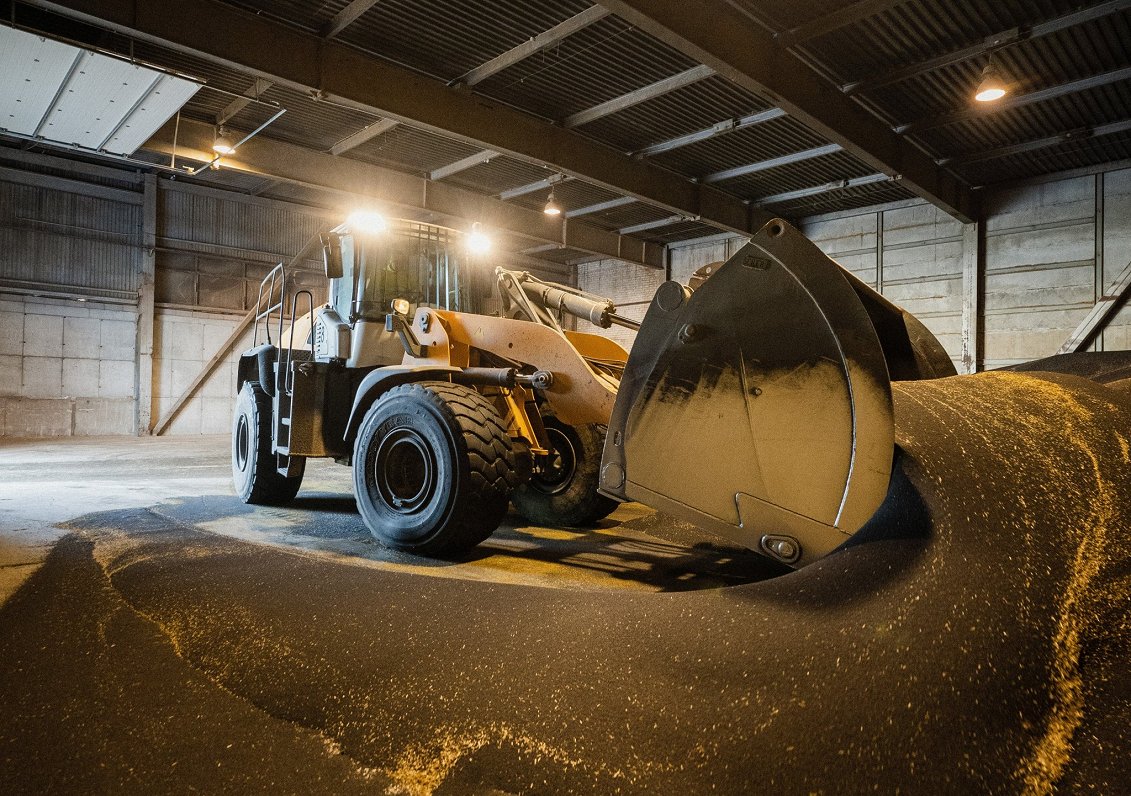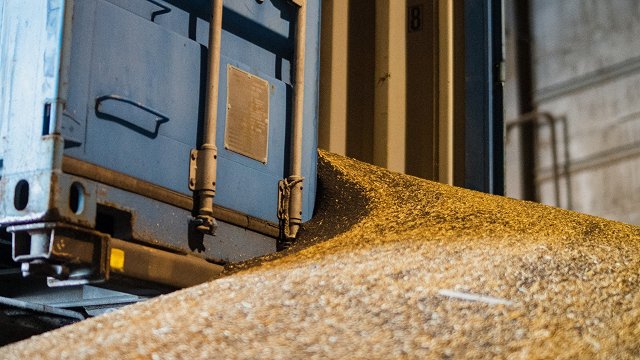Russian grain is not on the European Union's (EU) sanctions list so that impoverished countries have access to food. Some of the Russian grain passes through Latvia to other countries of the world, but this year around 400,000 tonnes have also remained in the European Union where the grain is used for both food and feed.
“Currently, no legislative act in the EU or Latvia restricts imports of these foods originating in Russia. This year 382,808 tons of food cereals from Russia have been imported into the European Union [through Latvia], “said Iveta Šice-Trēde, Director of the Border Control Department of the Food and Veterinary Service.
She estimated that during 11 months of this year, 80,000 more tonnes of grain were imported into the European Union from Russia than during the whole 2022, when 303,000 tonnes were imported.
To stop this support to the Russian economy, Latvia calls for a ban on imports of Russian grain into the European Union as a whole.
Agriculture Minister Armands Krauze (Union of Greens and FFarmers) said importing grain from Russia was "an ethical issue because grain is imported and used in the EU from an aggressor country that has caused war, and it is also an economic issue as Russia trades grain below stock exchange prices. This has a significant impact on EU Member States and also on Latvia's economy, and prices have fallen significantly this year. Import policy and sanctions are decisions at EU level.”
The government supported this plan last week, and Krauze this week encouraged a ban on Russian grain imports at the Council of Agriculture and Fisheries Ministers of the European Union in Brussels.
The almost 400,000 tonnes of grain imported from Russia do not include the amount of grain transported from the aggressor country in transit through Latvia to third countries. Krauze pointed out that this flow must be maintained in order not to hurt global food security.
“There are regions where grains are needed to avoid starvation. And in line with the policies of the UN and other international organizations, we cannot act in such a way that, for example, people suffer in an African country. Therefore, transit will certainly continue, but in the EU food products are sufficient, we are not in danger of hunger and therefore it is very important to restrict imports of these grains from Russia,” Krauze said.
Meanwhile, Latvia's largest grain cooperative “Latraps” called on the government to tighten the requirements for transit of grains of Russian origin to third countries to exclude Latvia from participation in this chain completely, explained Ginta Briede, head of the grain Trade Division of Latraps.
Grain imports are also an economic consideration. Briede said that restricting Russian grain transport would contribute to increasing grain prices in the market as there would be no competition with the price of Russian-sourced cereals.
"Volumes imported into the European Union from Russia can be grown here in Europe and we are completely self-sufficient in this area. Conversely, if we are talking about export markets where third countries buy products from both Russia and other countries around the world, including the European Union, then of course there we are in direct competition with agricultural products originating in Russia and, if it is cheaper, then accordingly we have to be cheaper,” Briede said.
2.96 million tonnes of grain and processed products thereof, as well as seeds and fruits, were transported from Russia through Latvia in land and sea transit in 10 months of this year, Latvian Railways reported. Only 11,000 tonnes of this freight group were import shipments. Therefore, the proposed ban on imports of Russian grain would not have a significant impact on the total volume of transport.
Meanwhile, Russian grain cargoes transported directly through Latvia in 10 months of this year account for approximately 25% of the total cargo transported by Latvian Railways subsidiary LDz cargo (12.13 million tonnes).
Latvian Railways pointed out that since last March, when international sanctions gradually took effect, volume in nearly all cargo segments has fallen significantly.
“We do not know exactly how much remains in Latvia, but what we know is that Latvia is one of the points through which grain is imported into the European Union. The largest import of Russian grain appears in Italy, Latvia, and then Greece,” said Agriculture Minister Krauze.
Guntis Gūtmanis, head of the Cooperation Council of Agricultural organizations, has repeatedly surveyed the largest farms using grain for fodder over the past month, but there is no information about any of the local suppliers using grain from Russia.
“Our farmers are very cautious and would not risk using such grains at all for one reason, because grains grown in Russia are beyond European requirements and can use various substances banned in Europe for cultivation - plant protection products, pesticides, which can then affect the quality of the feed and also the health of the livestock. Consequently, the farmers I have surveyed say they would not use these grains even if there was such a legal option,” Gūtmanis said.
“However, most grain passes through Latvia in transit to third countries. When it comes to Russian grain, the big question for us is whether we need to trade with Russia at all and what it looks like. But in reality, there's still the question of what grain it is, what their origin is, and whether it's stolen grain in Ukraine, which no one can answer either, of course. We are looking forward to a common European decision on this issue,“ Gūtmanis said.
The head of the PVD border control department Iveta Šice-Trēde added that Russian grain imported into Latvia in both railway cargoes and trucks is being tested, but no breaches have been detected so far.































